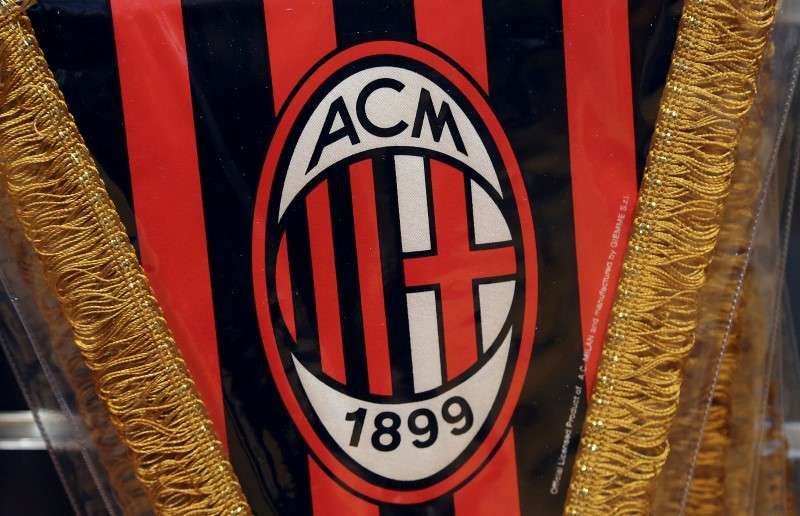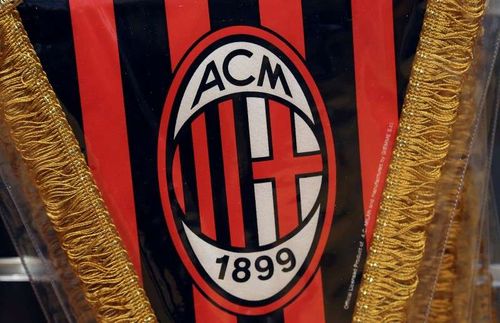
China Inc's $3 billion land grab among Europe's soccer royalty

By Pamela Barbaglia and Adam Jourdan
LONDON/SHANGHAI (Reuters) - It was over lunch at his villa outside Milan with soccer "super-agent" Jorge Mendes that Italian tycoon Silvio Berlusconi realised an unpleasant truth: his storied club, AC Milan, needed cash, and plenty of it.
Mendes, a source familiar with the matter said, was discussing the potential sale of Colombian star James Rodriguez from Real Madrid for 85 million euros ($95 million)- cash that loss-making, debt-burdened AC Milan simply did not have.
Weeks later, Berlusconi became the latest European club owner to sell out to Chinese buyers, in a shopping spree that has caught up clubs from England's Aston Villa to France's OGC Nice and adds up to around $3 billion since December alone.
AC Milan, if the preliminary agreement announced last week is confirmed, will mark one of the largest club deals to date in European football - valuing the "rossoneri" - or "red and blacks" - at 740 million euros ($825 million), including 220 million of debt.
Yet the buyers - Li Yonghong, Li Han and Haixia Capital, and a handful of other entities not named by former Italian Prime Minister Berlusconi's firm - are unknown and untested in European football.
There was no public signing or press conference to herald the deal - only a handful of photographs released after a private handshake at Berlusconi's Sardinia villa.
Other Chinese buyers of rival clubs over the past months, their cash promising to shake up the game, are similarly little known in the sport, including a packaging firm, an eco-city builder and a maker of food additives.
"If I'm honest, I haven't got a clue who Li Han and Li Yonghong are," said Lou Yicheng, a veteran sports commentator in China who has been in the business for more than 20 years. "There are certainly lots of questions that still need answering."
Sino-Europe Sports Investment Management Changxing, the vehicle used for the AC Milan deal, says it has support from local government in China - which president and soccer enthusiast Xi Jinping wants to turn into a football superpower by 2050.
A spokesman for the local Changxing government said it had no financial connection with Sino-Europe Sports and was not directly involved in the deal. He declined to comment further.
No European football association has yet raised major concerns about the influx of Chinese money, though most, like England's Football Association, do have some provision to consider if new owners are "fit and proper".
Carlo Tavecchio, Chairman of the Italian Football Federation, said this week there were some "strange situations" arising from the flush of cash from China.
"If China intends to host the World Cup in 2030 then it means it will invest in Europe," he told reporters. "Unlike the past, this sector now attracts and includes a series of people who are not part of the football sector."
A QUICK BUCK
With all but Europe's very richest clubs struggling to compete in the transfer market for the best talent, the lure of Chinese cash is strong.
A sped-up AC Milan deal could help the 18-times Italian champions fund player acquisitions to bolster a squad that ended up in a lowly seventh position last season and failed to qualify for the lucrative UEFA Champions League.
A source involved in the deal said the Chinese group, advised by investment bank Rothschild, would provide a 100 million euro shareholder loan to finance new players. A deposit of 15 million euros paid by the buyers, to be followed by a further 85 million euros next month, could also be used to secure transfer deals.
For China, it is about boosting its clout in an almost universally popular sport, encouraged by President Xi Jinping, who has made it a goal to host and win the World Cup.
"It has become increasingly clear that China intends to become a major force in world football," said London-based football finance specialist David Bick.
It is also about taking opportunities - getting a slice of the lucrative global love affair with live sports, for which sponsors and TV and internet viewers will pay up.
In England, for example, a bumper new TV deal guarantees that even the team finishing last in the Premier League will earn 100 million pounds ($130 million).
The unlikely triumph of Leicester City - owned by a Thai duty free magnate - last season has also boosted the appeal of less fashionable teams.
"Aston Villa is at the lowest ebb in its history," said new owner Xia Jiantong after a deal to buy the English club earlier this year. The club were relegated from the Premier League last season after winning just three matches.
"For me it's a challenge but also a huge opportunity."
But the buyers have many fans and industry veterans stumped.
AC Milan's city rival, Inter Milan, was bought by giant Chinese electronics retailer Suning for more than $300 million in June. Suning, better known for its microwaves and rice cookers, now wants to create a global soccer empire stretching from clubs to broadcasting.
Beijing certainly has big aims: to grow the domestic sports market to 5 trillion yuan ($753 billion) by 2025, about five times its current size. And it certainly has clout among its business community.
Industry insiders and investors themselves, however, said the motivation is often simpler: cold, hard returns.
"We're not buying OGC Nice just because we want to, instead we see opportunities and we have made a 3-5 year plan," Chien Lee, co-founder of hotel group 7 Days Inn and the French club's new chairman, told Reuters in an interview in Hong Kong.
Lee, who led a group of Chinese and U.S. investors to buy an 80 percent stake in OGC Nice in June, added it would help his firm promote sports tourism in the coastal city of Nice and create package tours to nearby Monte Carlo and Cannes.
"I see it as a business opportunity and so I invest." ($1 = 6.6410 Chinese yuan) ($1 = 0.8969 euros) ($1 = 0.7716 pounds)
(Additional reporting by Giulia Segreti in MILAN, Jake Spring in BEIJING, Anjuli Davies, Lina Saigol and Emma Thomasson in LONDON, Clare Jim in HONG KONG and SHANGHAI newsroom; Editing by Alex Richardson)